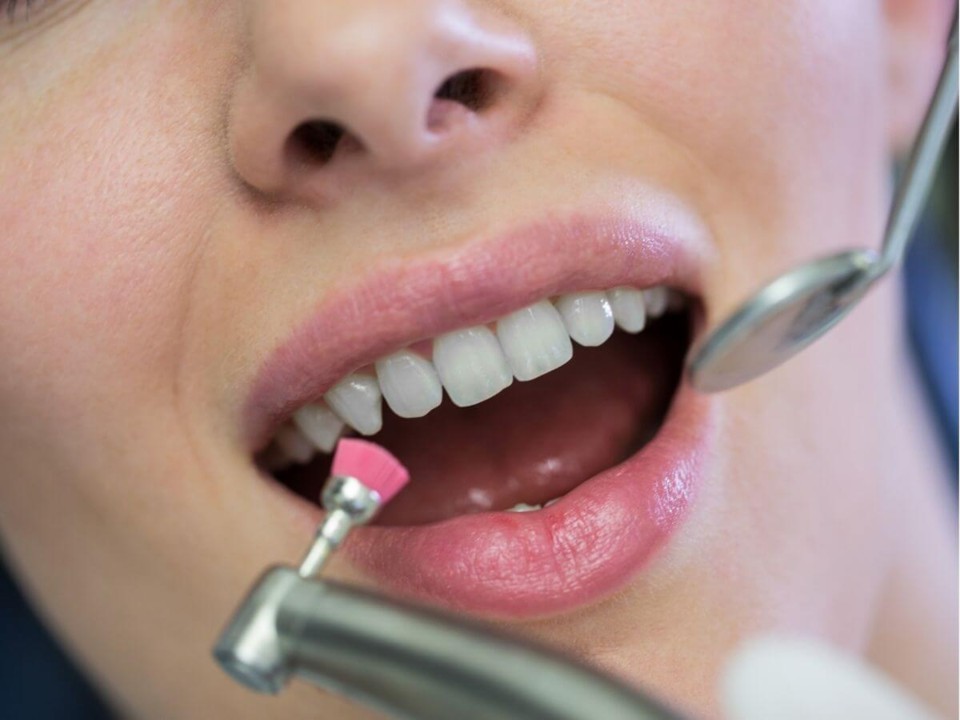
Teeth polishing and scaling are common dental procedures often used to maintain oral health and aesthetics. Many people opt for these treatments to remove plaque, tartar, and stains from their teeth, leaving their smiles brighter and cleaner. However, individuals with sensitive teeth often wonder if these procedures are safe or if they could worsen their discomfort. Teeth Polishing & Scaling in Dubai(تلميع وتقليح الأسنان في دبي) can be beneficial for those with sensitive teeth, but understanding the procedure and its effects on your teeth is important before deciding if it’s the right treatment for you.
Understanding Teeth Polishing and Scaling:
Teeth polishing and scaling are dental procedures aimed at cleaning and smoothing the surfaces of your teeth. Teeth scaling is typically performed to remove plaque and tartar that may have built up on the teeth and along the gum line. This process is important because plaque, if left untreated, can harden into tartar, which can lead to gum disease and cavities.
On the other hand, teeth polishing involves using a special paste and a high-speed rotating tool to buff the teeth, removing any remaining plaque and stains from the surface. This step leaves the teeth feeling smooth and shiny. While these procedures are commonly used together, they are not always necessary for everyone, especially those with sensitive teeth.
How Sensitive Teeth Are Affected by Polishing and Scaling:
Sensitive teeth can be a result of a variety of issues, including enamel erosion, gum recession, or worn-down fillings. When the protective enamel layer thins, it exposes the inner layer of the teeth, known as the dentin, which contains tiny nerve endings. This exposure can lead to sharp, sudden pain when consuming hot, cold, or acidic foods.
For individuals with sensitive teeth, the thought of a scaling or polishing procedure might be intimidating. The scaling process involves scraping off plaque and tartar, which can sometimes feel uncomfortable if the teeth and gums are already sensitive. Polishing, though generally less invasive, can sometimes cause discomfort, especially if there is existing gum irritation or enamel wear. Understanding the effects of these procedures on sensitive teeth can help you make an informed decision about whether or not to proceed.
Benefits of Teeth Polishing & Scaling for Sensitive Teeth:
While it might sound counterintuitive, teeth polishing & scaling can actually benefit individuals with sensitive teeth. Removing plaque and tartar from the teeth and gum line can help reduce the risk of gum disease, which can cause gum recession and further expose the sensitive parts of the teeth. Regular cleanings can also help prevent the buildup of stains from coffee, tea, or tobacco, which can further irritate sensitive teeth.
Additionally, scaling and polishing remove the bacterial plaque that can cause gum irritation. For many individuals with sensitive teeth, keeping the teeth and gums clean is a crucial step in managing sensitivity. By regularly removing plaque buildup, scaling can prevent conditions like gingivitis, which may worsen tooth sensitivity over time.
Should People with Sensitive Teeth Avoid Teeth Polishing & Scaling?
Although teeth polishing & scaling are generally safe for most people, individuals with severe sensitivity or underlying oral health conditions may need to consider a more tailored approach. If your teeth are extremely sensitive, your dentist or hygienist may opt for a gentler cleaning technique or use desensitizing agents before the procedure to reduce discomfort.
In cases where sensitivity is linked to gum disease or enamel erosion, the dentist may recommend waiting until the condition is stabilized before proceeding with a thorough cleaning. Some people with very sensitive teeth might experience discomfort during the scaling and polishing process, but these sensations typically fade soon after the treatment.
The Role of Professional Care in Scaling & Polishing:
Professional care is key when it comes to scaling and polishing procedures, especially for individuals with sensitive teeth. Dental professionals are trained to identify areas of concern and tailor the cleaning process to minimize discomfort. They will take into consideration the severity of your sensitivity, as well as the health of your gums and teeth, ensuring that the procedure is as gentle as possible.
In addition, dental hygienists use specific tools that allow for precise scaling and polishing. These tools are designed to minimize pain and ensure that plaque and tartar are effectively removed without damaging the enamel or irritating the gums. The use of gentle techniques and specialized instruments makes these procedures safe for most individuals, even those with sensitive teeth.
Managing Discomfort During the Procedure:
If you're concerned about discomfort during teeth polishing & scaling, there are several ways to manage it. Informing your dental professional about your sensitivity can help them adjust the procedure. They may apply a topical numbing gel to the gums or use lower-intensity tools to clean the teeth more gently. In some cases, a fluoride treatment may also be applied at the end of the procedure to help remineralize the teeth and reduce sensitivity.
It’s also important to practice good oral hygiene habits after the procedure. Following the scaling and polishing, your teeth may feel temporarily more sensitive. Brushing with a soft-bristled toothbrush and using toothpaste specifically designed for sensitive teeth can help alleviate discomfort. Avoiding extremely hot or cold foods for a few days can also help.
Conclusion: Weighing the Risks and Benefits
Ultimately, teeth polishing & scaling are safe for most people, including those with sensitive teeth, as long as the procedure is done correctly and with care. The key is to discuss your sensitivity concerns with your dental professional so they can tailor the treatment to your needs. These procedures offer long-term benefits for maintaining oral health and preventing gum disease, which can ultimately help reduce sensitivity over time.
If you have sensitive teeth, it’s important to keep up with regular dental visits to ensure your teeth and gums remain healthy. Scaling and polishing are valuable tools in achieving this goal, and with proper care, they can help you maintain a bright, healthy smile without exacerbating sensitivity issues.













